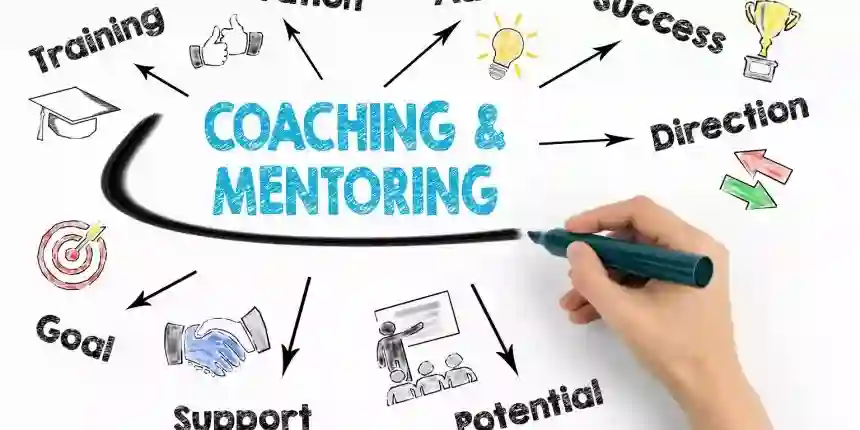Leadership is a multifaceted skill that extends far beyond holding a position of authority. Effective leadership involves inspiring and guiding individuals or teams toward a common goal, fostering collaboration, and making sound decisions. It’s a skill that can be honed and developed through various methods, including life coaching. In this comprehensive guide, we will explore the essential components of effective leadership, the impact of leadership coaching, and how it can empower individuals to become exceptional leaders in their personal and professional lives.
Understanding Effective Leadership
Effective leadership encompasses a wide range of skills, traits, and behaviors that contribute to successful leadership. Here are some key components of effective leadership:
- Communication: Effective leaders are skilled communicators who can convey their vision, expectations, and feedback clearly and confidently.
- Empathy: Empathetic leaders understand and relate to the emotions and perspectives of others, fostering trust and collaboration.
- Decision-Making: Leaders must make informed and timely decisions, weighing the pros and cons and considering the impact on their team or organization.
- Adaptability: In a constantly evolving world, leaders must be adaptable and open to change, guiding their teams through transitions effectively.
- Vision: Effective leaders have a clear vision and the ability to inspire others to work toward common goals.
- Problem-Solving: Leaders must identify challenges, devise solutions, and implement strategies to overcome obstacles.
- Conflict Resolution: The ability to resolve conflicts constructively and maintain a positive team dynamic is crucial for effective leadership.
- Empowerment: Leaders empower their team members, enabling them to take ownership of their work and contribute to the organization’s success.
- Self-Awareness: Leaders who are self-aware can recognize their strengths and weaknesses and make necessary improvements.
- Motivation: Inspiring and motivating others to achieve their best is a hallmark of effective leadership.
The Importance of Effective Leadership
Effective leadership is essential in various contexts, from business and organizations to community groups and personal relationships. Here’s why effective leadership matters:
- Productivity: Effective leaders can motivate their teams to be more productive, achieving goals efficiently.
- Innovation: Leaders who foster a culture of innovation can drive creativity and problem-solving within their organizations.
- Employee Engagement: Good leadership can enhance employee satisfaction and engagement, leading to lower turnover rates.
- Team Cohesion: Effective leaders can create a cohesive and collaborative team that works well together.
- Organizational Success: Strong leadership is often the linchpin of an organization’s success, shaping its culture and direction.
The Role of Life Coaching in Developing Leadership Skills
Life coaching is a powerful tool for developing effective leadership skills. Here’s how life coaching can empower individuals to become exceptional leaders:
- Self-Reflection: Life coaches encourage clients to engage in self-reflection, helping them identify their leadership strengths and areas for improvement.
- Goal Setting: Coaches assist clients in setting specific leadership development goals, creating a roadmap for growth.
- Communication Skills: Coaches provide guidance on improving communication skills, helping clients convey their ideas and vision effectively.
- Emotional Intelligence: Life coaches work on developing emotional intelligence, enabling clients to understand and manage their emotions and those of others.
- Decision-Making: Coaches help clients refine their decision-making process, considering different perspectives and potential outcomes.
- Conflict Resolution: Coaches provide strategies for constructive conflict resolution, ensuring that conflicts are addressed in a healthy manner.
- Vision and Strategy: Life coaches assist clients in clarifying their vision and developing strategies to achieve their leadership goals.
- Accountability: Coaches hold clients accountable for their leadership development actions, ensuring progress and consistency.
- Leadership Presence: Coaches work on enhancing clients’ leadership presence and charisma, making them more influential leaders.
- Empathy and Empowerment: Coaches help clients cultivate empathy and empowerment skills, fostering trust and collaboration within their teams.
Case Study: Developing Leadership Skills with Life Coaching
Let’s explore a real-life scenario where life coaching played a pivotal role in developing leadership skills:
Client Profile: Alex, a mid-level manager in a tech company, sought life coaching to improve his leadership skills. He felt overwhelmed by his responsibilities and struggled to communicate effectively with his team.
Life Coaching Journey:
- Self-Reflection: Alex’s life coach encouraged him to reflect on his leadership experiences and identify areas of improvement.
- Goal Setting: Together, they set specific leadership development goals, including improving communication and decision-making.
- Communication Skills: The coach provided guidance on active listening and effective communication techniques, helping Alex convey his ideas more clearly.
- Emotional Intelligence: Through coaching sessions, Alex developed his emotional intelligence, allowing him to better understand and manage his own emotions and those of his team members.
- Conflict Resolution: The coach introduced conflict resolution strategies that helped Alex address conflicts within his team constructively.
- Vision and Strategy: Alex clarified his leadership vision and worked with his coach to develop a strategic plan for achieving his leadership goals.
- Accountability: The coach held Alex accountable for implementing the strategies and techniques discussed in their coaching sessions.
- Leadership Presence: Alex learned techniques for enhancing his leadership presence and inspiring his team.
- Empathy and Empowerment: Coaching helped Alex cultivate empathy and empower his team members, creating a more collaborative work environment.
Results: Over time, Alex’s leadership skills improved significantly. He reported better communication with his team, increased productivity, and reduced conflicts. His journey showcased the transformative power of life coaching in developing effective leadership skills.
In Conclusion
Effective leadership is a skill that can be developed and honed with the right guidance and support. If you aspire to become a more effective leader in your personal or professional life, consider the transformative potential of life coaching. Embrace the opportunity to reflect on your leadership strengths, set meaningful goals, and develop the skills and qualities that make exceptional leaders. With the guidance and support of a life coach, you can embark on a journey toward becoming a more influential and impactful leader, positively shaping your team, organization, and the people you lead.




